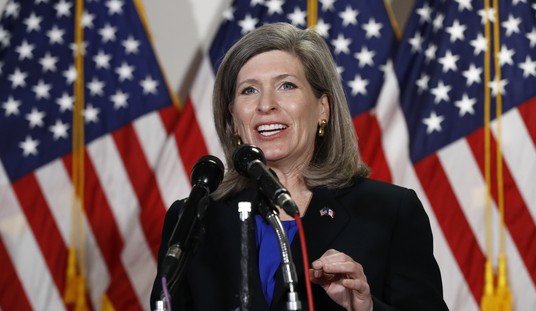A return to form historically. Until 1992, the second presidential debate typically drew almost as many viewers as the first; in 1992, thanks to Perot’s late entry, the second and third debates actually outperformed the first one considerably. Over the next three cycles, though, there was a falloff of five million households or so between the first and second. That changed in 2008, when Obama/McCain II drew many more viewers than Obama/McCain I, but I think that was a byproduct of public interest in the Palin debate that happened between those two more so than organic viewer interest in the Obama vs. McCain dynamic.
Obama/Romney II didn’t outdraw O’s Denver debacle two weeks ago, but it came awfully close:
With an estimated 65.6 million viewers, the television audience for the second presidential debate between President Barack Obama and Republican Mitt Romney was smaller than the first — but only slightly.
The Nielsen company said 67 million people watched the first debate a week earlier. Tuesday’s town hall style debate at Hofstra University was still seen by more than any of Obama’s three debates with John McCain in 2008, and had more viewers than any second presidential debate since 1992.
It was shown live on 10 television networks, with the Spanish-speaking Univision and Telemundo airing it on tape delay.
Fox News matched its biggest night ever, essentially duplicating its ratings for Palin’s VP debate. Meanwhile, the NYT’s media correspondent thinks the total audience — including Internet viewers and people watching somewhere other than home — might have surpassed 70 million, which was also likely true of the first debate. In theory, then, this one might have drawn an even bigger crowd than the Denver debate.
I’ll give you three half-assed speculative reasons as to why. One: Maybe the public digs the unpredictability of townhall debates. To believe that, though, you have to believe that (a) low-information voters took the initiative to check beforehand and confirm that this was a townhall debate, which seems unlikely, and (b) public interest in seeing the candidates field questions from random people is roughly as big a lure as the novelty of seeing the candidates finally face to face at the first debate. I’m skeptical. Two: Romney’s big showing in Denver impressed enough fencesitters and casual voters that they were eager to see more of him. Plus, the endless headlines after the first one about how terrible Obama was added enough intrigue this time about how well he would perform that all sorts of people who wouldn’t normally be interested in a second debate tuned in. This, I think, is way more likely. Three: Social media. Facebook and Twitter have grown enormously since 2008, and of course on debate nights they become huge sounding boards for people who are watching. If you’re a regular joe who’s not into politics but does spend a lot of time using one of those platforms, your curiosity will naturally be piqued when you see your timeline of friends explode with debate reaction. You’ll click over and watch for a bit, if only so that you can follow along. If I’m right about that, then you may not see much falloff for the third debate either, even though it deals with a subject (i.e. foreign policy) in which voters are typically less interested.
For your viewing pleasure, here’s Jimmy Kimmel building on his ingenious iPhone 5 goof by asking people on the street who they thought won the debate — before the debate happened. (You know the correct answer, of course.)







Join the conversation as a VIP Member